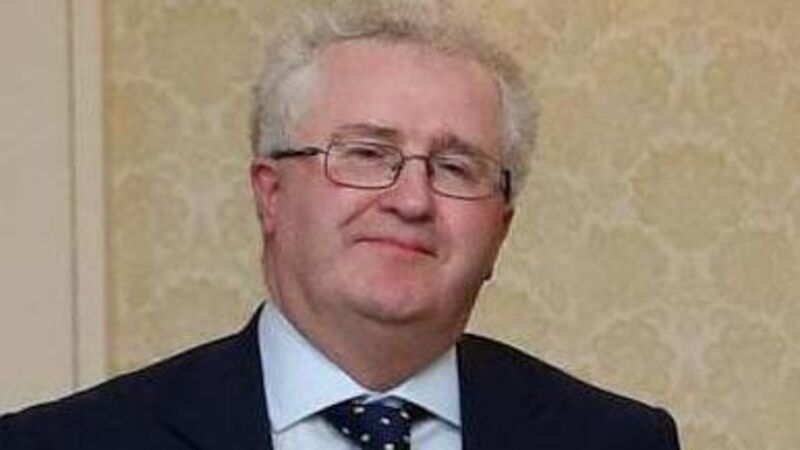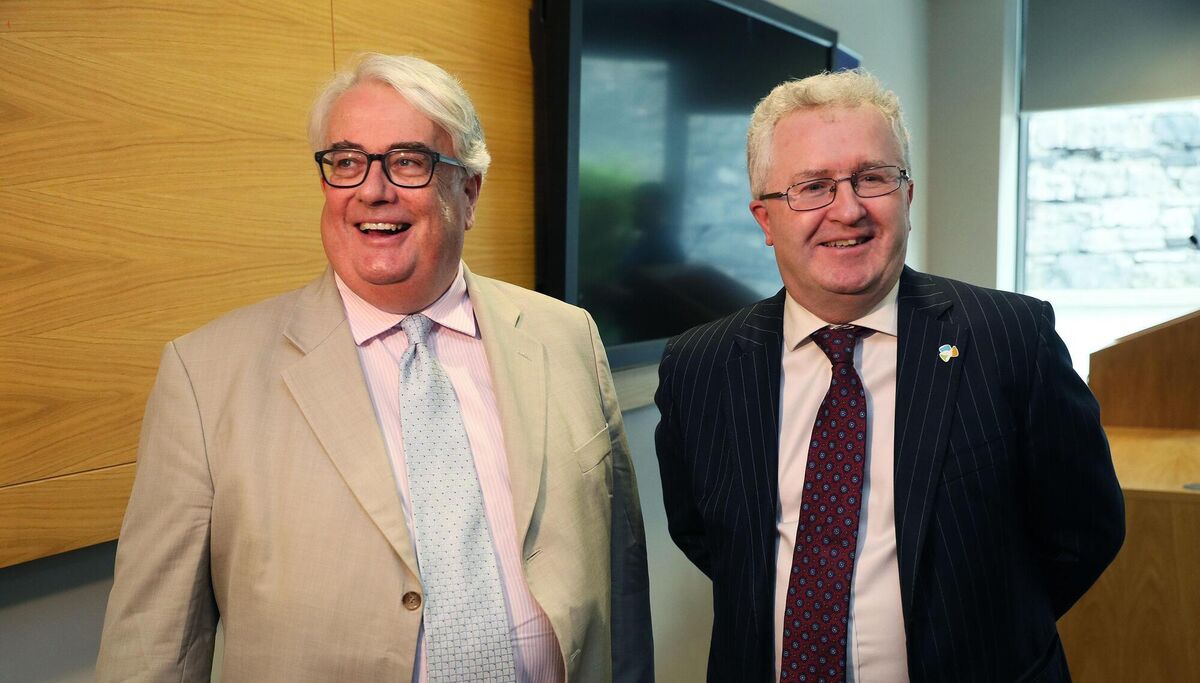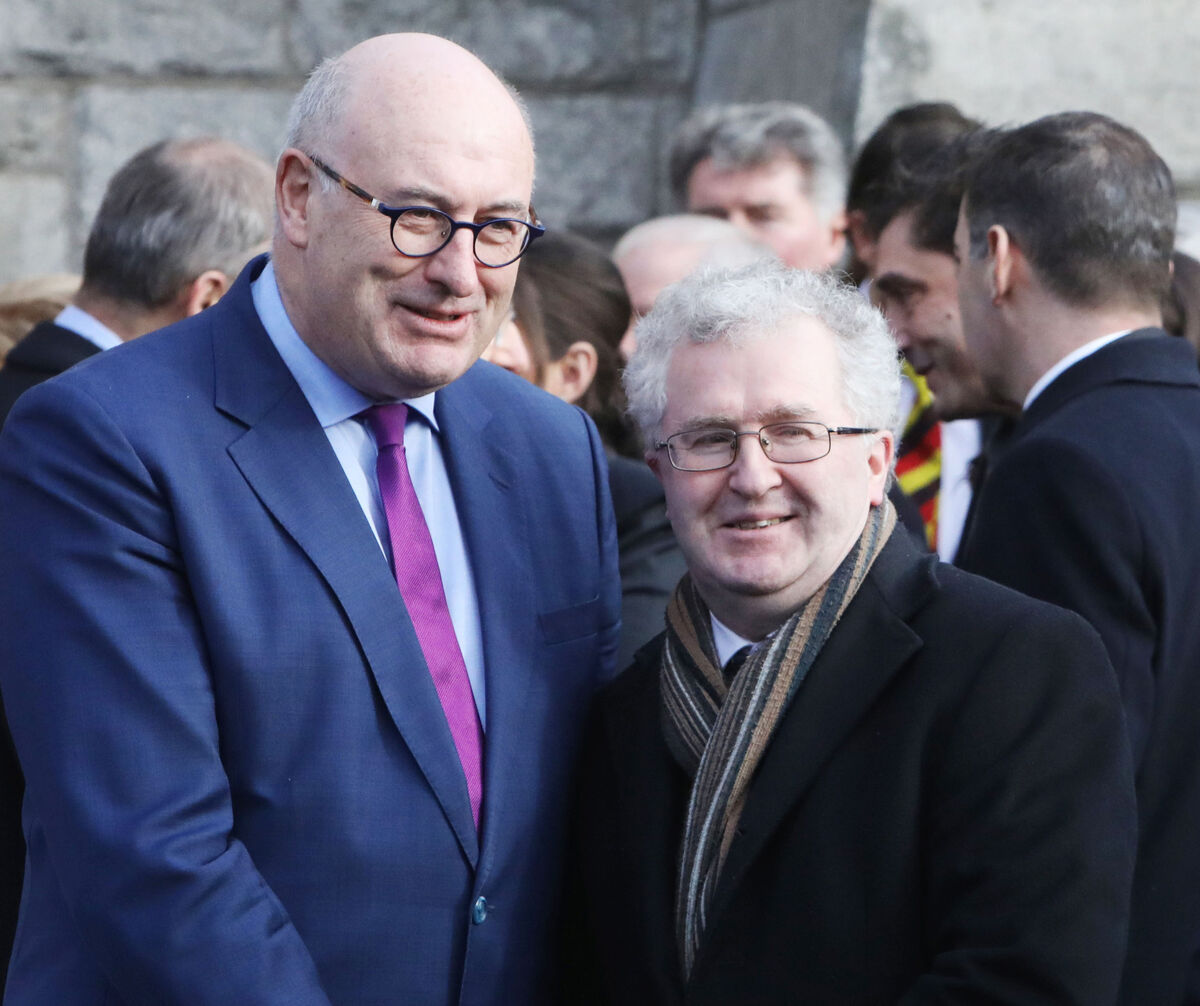Chief Justice says he thinks Seamus Woulfe should resign

Seamus Woulfe. Picture: Maxwells
The Chief Justice has given his personal view that Seamus Woulfe should resign.
Mr Woulfe met with Chief Justice Frank Clarke last week in the Four Courts to discuss the fall-out from the Oireachtas Golf Society dinner which took place in August.
Despite having no legal grounds to force Mr Woulfe to do so, letters between the two men show that Mr Clarke felt standing down from the Supreme Court was the appropriate course of action after Mr Woulfe's attendance at the controversial Golfgate event, while Mr Woulfe disagrees.
"It is not part of my role to ask, let alone tell, you to resign," the Chief Justice wrote.
"Resignation is and can only be for the judge him or herself. Regrettably, however, I believe that I should make clear my personal opinion that, to avoid continuing serious damage to the judiciary, you should resign."
"A judge should not attend any event which is organised in breach of the law or where there may be a reasonable public perception that this is so," Justice Clarke goes on to say.
"To do so brings the law into disrepute and is therefore a serious breach of judicial ethics.
"A failure by a judge to observe these principles can lead to serious damage to public trust in, and respect for, the judiciary. That has occurred in this case.
"The manner in which you have met this problem has, in my view, added very substantially to the damage caused to the Court.
"That account appeared to show that you did not appreciate the genuine public concern about the event and your attendance at it, but rather continued to put the controversy down to a media frenzy."
Mr Woulfe's letter responding to Mr Clarke shows that he disagrees with the Chief Justice's assessment, and both men have settled on the compromise that Mr Woulfe will not sit on the Supreme Court for three months.
He will donate his salary for that period to charity by way of atonement for his poor judgment in August, and will not be listed to sit as a judge until February 2021.

Mr Woulfe's letter to the Chief Justice details that he never proposed to resign and describes at length all the reasons he does not believe the correspondence between the two men should be published publicly. He also describes his grounds for his difference of opinion with the senior judge.
"I do not consider it in any way appropriate that I should resign," he wrote.
"The fact of the matter is, as accepted by Ms Justice Denham, I was not aware that the Cabinet had made such an announcement the previous night and I was totally unaware of any proposed 'rule of six' when I attended the dinner.
"I do not think it is fair to criticise me by saying I did not respect such guidelines in circumstances where I was simply not aware.
"It was simply a matter of fact. I attended a dinner in a room with 45 people, not 80 people.
"I would ask you to consider, however, that my meeting with Ms Justice Denham was the first time in over four weeks after the dinner, during which period I was subjected to intense criticism on what I believed to be a mistaken premise, that I had an opportunity to explain myself to anybody. I was under the most intense pressure, personally, physically and emotionally, and the transcript, like all transcripts, does not adequately communicate those sensations."
Previous meetings with the Chief Justice had been repeatedly postponed or cancelled four times at Mr Woulfe's request citing personal or medical reasons, despite the Chief Justice making clear he was anxious to have the matter resolved. Legal sources said the longer Mr Woulfe postponed the matter, the less likely it would be that he could join the Supreme Court bench.
Mr Woulfe had been appointed to the Supreme Court in July of this year, however, due to the controversy, has not yet heard any cases.
In a statement, Chief Justice Clarke expressed "his very serious concern" about the damage caused by the continued delays in the process to address the Golfgate controversy.
The event, which flouted public health regulations, caused huge public outrage and has seen a number of guests resign from their public posts including then-Minister for Agriculture Dara Calleary, then-EU Commissioner Phil Hogan and then-Seanad Leas-Cathaoirleach Jerry Buttimer.

Mr Woulfe's attendance at the event has been mired in controversy after a review into the incident by former Supreme Court Justice Denham.
Ms Denham concluded it was not appropriate for Mr Woulfe to resign. However, the publication of her interview with the newly appointed justice questioned his suitability for the role.
This was echoed by Justice Clarke who said: "The reasonable response of a great number of people to the transcripts has, in my judgment, caused even greater damage to the judiciary than did your attendance at the Clifden event."
Despite making a public apology after the event, transcripts of his conversation with Judge Denham undermined that apology as he admitted he apologised because others had and he wasn’t precisely sure what he was apologising for.
“I spoke to one or two people and I decided I would make an apology because one or two other people had apologised, for any unintentional breach of any guidelines on my part,” he said.
“Now, I was a bit hesitant about doing it because I wasn't sure what I was apologising for... And I think what's very interesting is - and I've only noticed this yesterday when I went back to the apology - the fact that I said ‘do apologise for any unintentional breach of any of the new guidelines on my part,’” he told Judge Denham.
Judge Woulfe said to Judge Denham that the treatment of the Oireachtas Golf Society was appalling and claimed it was “presented like it was the Ku Klux Klan."
In response to these comments Justice Clarke said: "The public view was being formed by reasonable people and not by a media frenzy."
The comments ultimately led to Mr Woulfe being visited at the Four Courts by a number of judges in order to explain how his conduct had been perceived.
Commenting, a government spokesperson said: "The Attorney General has been asked to advise the Taoiseach and Government on the matter.
"It would be inappropriate to make any further comment at this stage.”
The Oireachtas must now decide whether it will seek to remove Mr Justice Séamus Woulfe.
To remove Mr Woulfe, resolutions would have to be passed by the Dáil and the Seanad citing “misbehaviour”.





